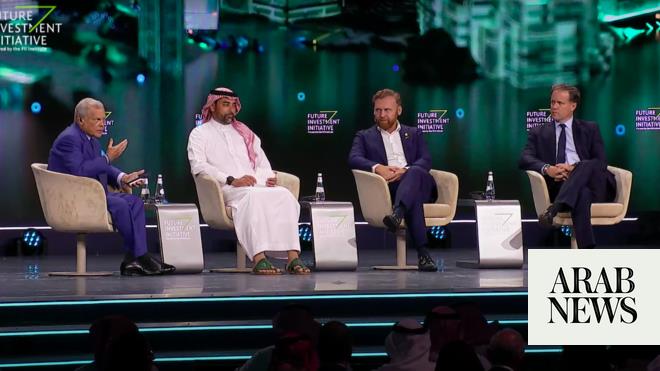
The significant success of last year’s inaugural Future Investment Initiative (FII), which was nicknamed “Davos in the Desert,” was not accepted by certain individuals outside Saudi Arabia.
In recent weeks, some saw an opportunity to launch media campaigns calling for a boycott of the conference in the wake of the killing of journalist Jamal Khashoggi at the Saudi Consulate in Istanbul.
That resulted in some Western officials, corporate executives and media bosses canceling their participation in the conference as a symbolic step, and to discourage potential harassment of their organizations.
Such media campaigns cannot however move beyond symbolism to influence the Saudi economy. The sheer scale of economic interests represented at the conference made it an irresistible event, which demonstrates the strength of the Saudi economy.
The Kingdom, one of the world’s 20 largest economies, has a large impact on the global growth. Saudi Arabia is one of the world’s richest countries per capita. The global technology industry is also looking toward major, continuing investments from the Kingdom.
Last week Arab News reported that Moody’s has raised Saudi Arabia’s GDP growth forecast for 2018 to 2.5 percent from 1.3 percent, and it maintains a “stable outlook” for the Kingdom’s economy. The ratings agency also increased its 2019 GDP forecast to 2.7 percent, well above the 1.5 percent previously predicted.
Despite all the transformations Saudi Arabia is currently undergoing, the Saudi economy consistently proves that it can absorb any political and economic challenges. This year’s FII achieved great success, with more than 4,100 participants who couldn’t miss taking advantage of the strong status of the Saudi economy globally. It also sent a strong message to the world: That Saudi Arabia is capable of responding to crises promptly and with the best corrective actions.
Yet the fact remains that the Saudi economy is in rude health, making it a strategic partner for many countries. Any harm to the Kingdom’s economy will hurt the entire world. And Saudi Arabia is not short of investment partners — alternatives are readily available.
Faisal Mrza
Despite the fact that many executives made headline-grabbing exits, remarkable deals were announced on the first day of the FII, with major international investors included in a raft of projects worth around $60 billion. Around $34 billion worth of these projects were related to energy, refining and petrochemicals, including 12 “mega deals.”
Massive deals have been done with major players such as Trafigura, Hyundai, Norinco, Schlumberger and Halliburton — indicating that top international companies continue to have trust in the Saudi economy. These also include the French oil and gas giant Total S.A., which in August withdrew from a multi-billion-dollar gas project in Iran following the return of US sanctions.
Regardless of the media chatter that the withdrawal of some participants to FII 2018 had brought losses to the Tadawul, the local stock market, the reality is that the Tadawul All Share Index (TASI) is up by 8.43 percent on this time last year. Price fluctuations and market volatility are normal market behavior. With the Saudi economy continuing to show strong economic indicators, the market is certain to rebound.
The confidence of the world in Saudi Arabia’s economy, its stability and ability to achieve the goals and strategies of Saudi Vision 2030 cannot be easily shaken.
It is clear that there are those who are trying to slow the economic leaps brought through the Saudi Vision 2030 reform plan and impede investment opportunities offered by events like the FII.
Yet the fact remains that the Saudi economy is in rude health, making it a strategic partner for many countries. Any harm to the Kingdom’s economy will hurt the entire world. And Saudi Arabia is not short of investment partners — alternatives are readily available.
_________________________________
• Faisal Mrza is an energy and oil market adviser. He was formerly with OPEC and Saudi Aramco. Twitter: @faisalmrza











